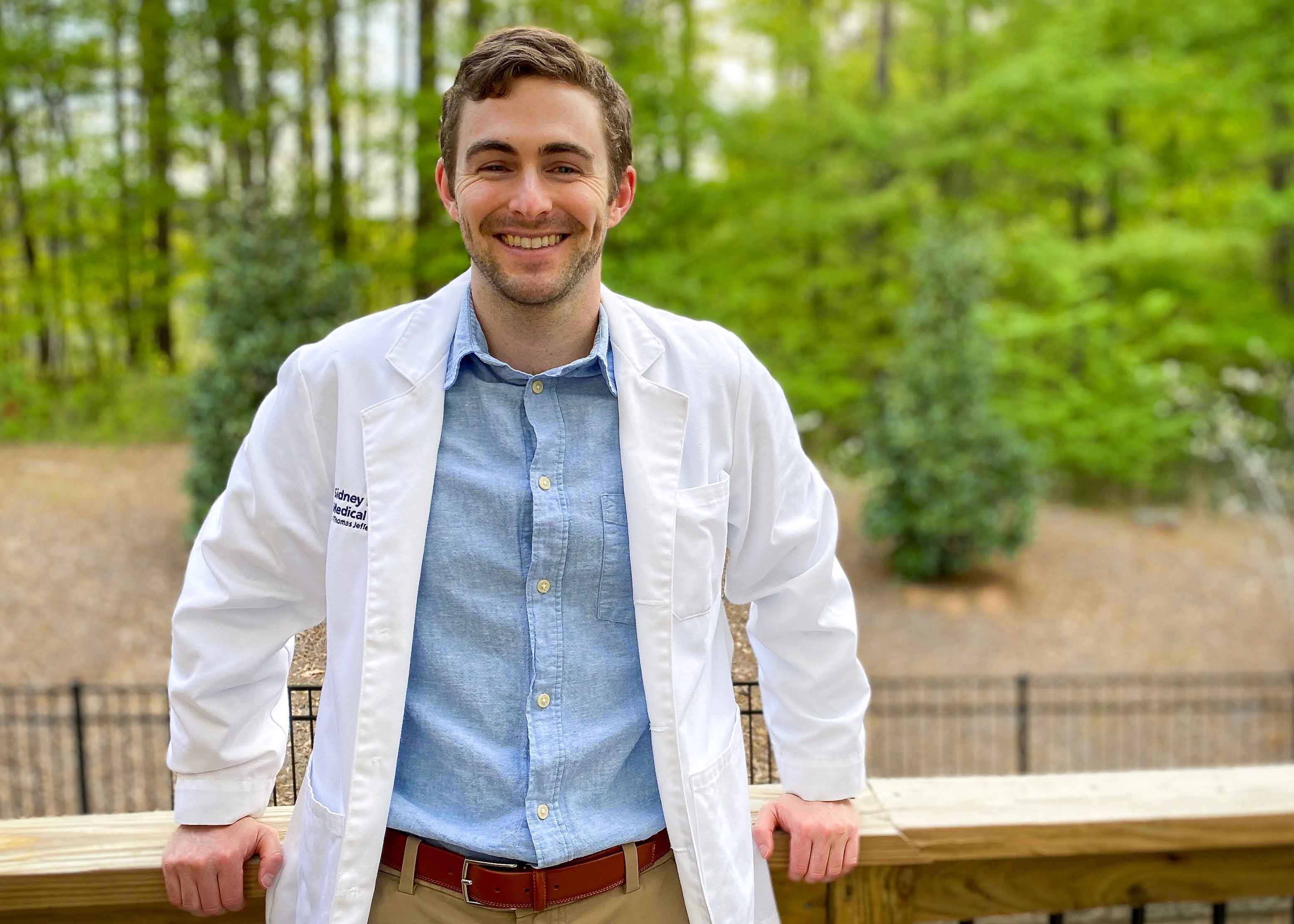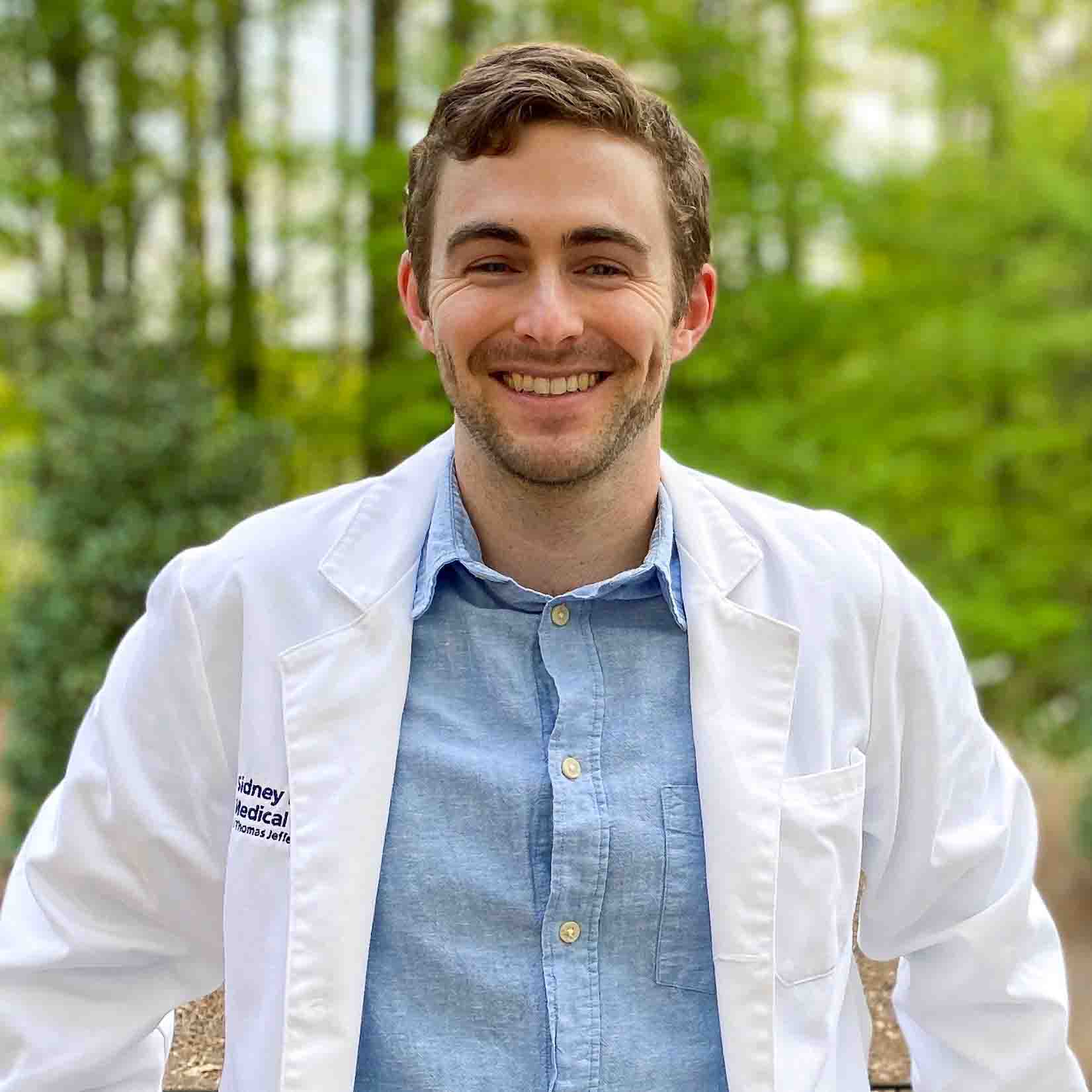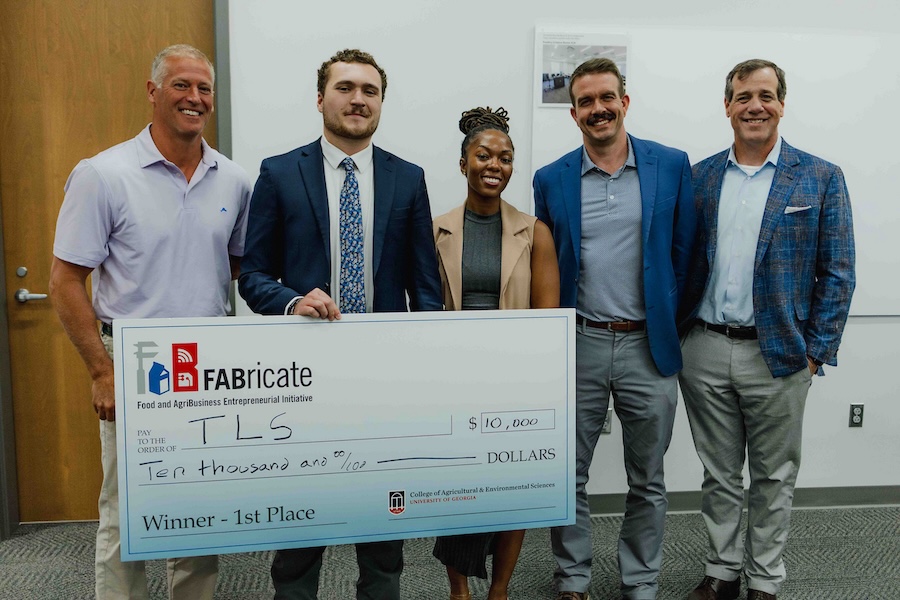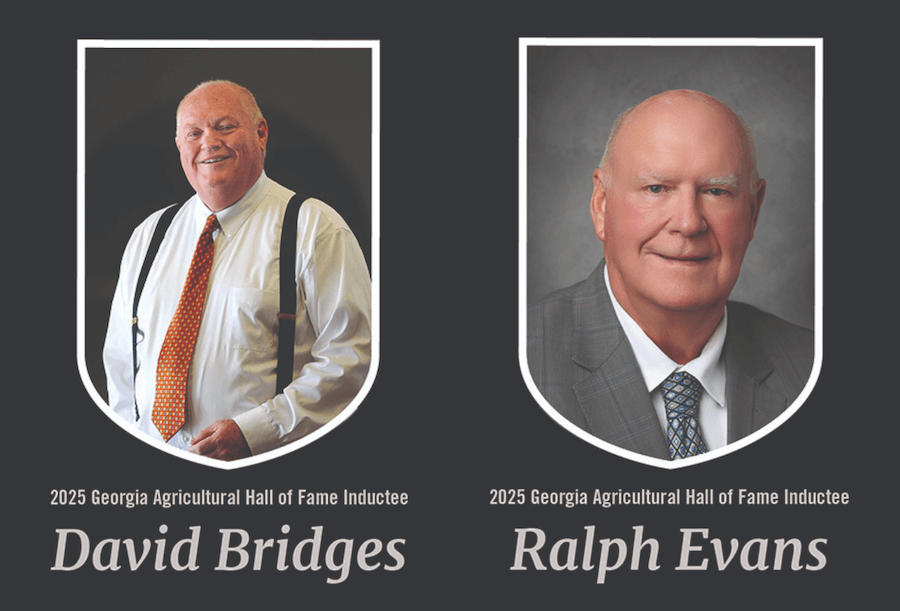There’s one college at the University of Georgia from which you might not expect to hear students applying to medical school — the College of Agricultural and Environmental Sciences (CAES).
But the core and elective science classes, diversity of majors and smaller classes are appealing to students who choose a pre-professional path in the college. Plus, the connections between food, animal and human health add another layer of interdisciplinary learning.
Adam Davis, associate professor in the Department of Poultry Science, teaches a reproductive endocrinology class using case studies that attracts many pre-professional students.
“It’s all direct application — you’re getting a description of a patient and from that you have to deduce what the problem is,” said Davis. “That immediately lends itself to veterinary or medical school, so the class is full of pre-vet, pre-med and pre-dental students. It’s a different style of class than they’re normally used to. When they have a take-home test with five days to complete, it’s a different world.”
CAES alumnus and current medical student Jake Goodman credits Davis’ course for preparing him for both the MCAT and medical school, saying, "The reproductive and endocrinology topics on the MCAT were my strongest due to Dr. Davis’ teaching."
Goodman’s degree in biological science is one of the more popular programs for pre-health students, but majors including animal science, applied biotechnology, avian biology, entomology and food science are all pre-health pathways in the college.
Grant Bennett, a sophomore avian biology student who hopes to pursue a career in medicine, enjoys the personalized attention and unique curriculum in the college.
“You stand out a whole lot more,” he said. “CAES has the only undergraduate course in the whole country that does hands-on surgery though poultry science. Plus, it’s really a big family. You really find a home in the College of Ag. It’s full of people that care about you.”
About one-third of CAES graduates surveyed by the UGA Career Center pursued graduate or professional school in 2019. Alumni from the class are now enrolled in in-state medical programs at Augusta University, Mercer University and Emory University, as well as at the University of Michigan and University of South Florida, among others.
Getting into medical or veterinary school isn’t an easy task, however.
“Students just think it’s grades and scores, but it’s more than that,” said Davis. “You have to put the whole package together. I can’t tell you the number of vet students who want to do a specialty but have no experience in that area. Be logical — don’t just follow the herd mentality of getting good grades and scores.”
Bennett has recently been working as a certified nursing assistant, or CNA, at a nursing home near his hometown in south Georgia to get hands-on experience, which is one of Davis’s top suggestions as a mentor to pre-professional students.
“I push my students to start internships working with a doctor — getting them in clinics where they’re going to see what they’re getting into,” he said. “The key is really to get that exposure and, if it’s something they love, those hard courses like organic chemistry are easier when you have an end goal and you know what you want.”
When it comes to applying, Davis urges students not to be discouraged if they aren’t accepted right away. He says students who are persistent and smart about their applications will likely eventually be accepted.
“I always tell students that these schools are competitive. Figure out what you want to do and stick with that. Students think all med schools or vet schools are the same, and they’re looking to do a cookie-cutter thing, and it’s not that way. Target schools appropriate to what you want to do,” Davis said.
Goodman learned this firsthand — he was denied from 25 schools over two application cycles, but kept applying while working part-time jobs. Now a fourth-year medical student in the Sidney Kimmel Medical College at Thomas Jefferson University, he started sharing stories about his path to medical school on social media after realizing many others were in a similar situation. The challenges he's faced resonate with many students, and he now has over 210,000 followers on TikTok.
He took a short break to pursue an MBA in the UGA Terry College of Business over the last year and realized the demand for pre-med advice while volunteering in the pre-health advising office.
“You don’t have to get into med school right after undergrad,” he explained. “Everyone will get there at a different pace. If you need to, take a gap year or two, do a post-baccalaureate program, or get healthcare experience. Take your time and focus on maintaining a good GPA without burning out. And take electives that you’re genuinely interested in.”
To learn more about pre-professional pathways and to explore majors in CAES, visit students.caes.uga.edu.








